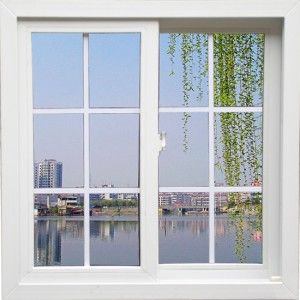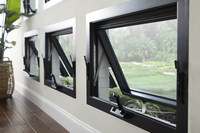Boost Your Home’s Green Quotient: The Energy Efficiency of Composite Windows
Every homeowner wants to maintain a comfortable home environment, and one of the key factors that contribute to this is the type of windows installed. As our understanding of energy use and efficiency grows, many people are turning to composite windows for their homes. But what exactly are these windows, and why are they often hailed as the best in terms of energy efficiency? Let’s explore.

What are Composite Windows?
Contents
Composite windows are made from a blend of materials, typically including PVC (polyvinyl chloride), resin, fiberglass, and sometimes even wood or aluminum. The combination of different materials results in windows that mimic the look and warmth of wood, but with the strength, durability, and low maintenance characteristics of vinyl or fiberglass. This blend of materials is similar to what your car’s bumper is made of, ensuring durability and resistance to various weather conditions.

Energy Efficiency of Composite Windows
Composite windows are designed with a key goal in mind – energy efficiency. These windows are often lauded for their ability to insulate a home and reduce energy loss. Composite windows offer superior thermal insulation compared to traditional window materials, helping to keep your home warm in the winter and cool in the summer.
This outstanding energy efficiency is due to the unique properties of the materials used. For example, PVC, a material commonly used in composite windows, has a low thermal conductivity, which means it doesn’t transfer heat very well. This property makes it an excellent insulator, which can lead to a significant reduction in energy costs.
Additionally, composite windows do not warp, expand, or contract in response to climate conditions or excessive heat, meaning that they maintain a tight seal year-round, preventing unwanted air leakage.
Composite vs. Vinyl Windows in Energy Efficiency
When it comes to energy efficiency, composite windows have a clear advantage over vinyl windows. While both types of windows are energy-efficient, composite windows tend to outperform vinyl in cold climates. Composite windows can sometimes also accommodate more substantial, energy-efficient glass packages than vinyl windows due to their stronger frames.
Durability and Maintenance
Composite windows are durable and require minimal maintenance. Unlike wood, which can rot or warp, composite materials resist decay and wear. They’re also easy to maintain – no need for regular painting or sealing like with wood windows.
Choosing Composite Windows for Your Home
With an array of color options and styles available, composite windows can complement both modern and traditional architectural designs. Whether you prefer the sleek appearance of a casement window or the classic look of a double-hung, composite windows can provide the look you want without compromising on energy efficiency.
So, if you’re contemplating a window replacement project, consider composite windows. Not only will they improve your home’s energy efficiency, but they also offer durability and aesthetic appeal. To determine if composite windows are the best window material for your home, get a free quote from a reliable window dealer in your area.
In conclusion, composite windows can be a worthwhile investment for homeowners who prioritize energy efficiency, durability, and low maintenance. While they may cost a bit more upfront compared to vinyl windows, their long-term benefits in energy savings and ease of upkeep often make them a cost-effective choice.

